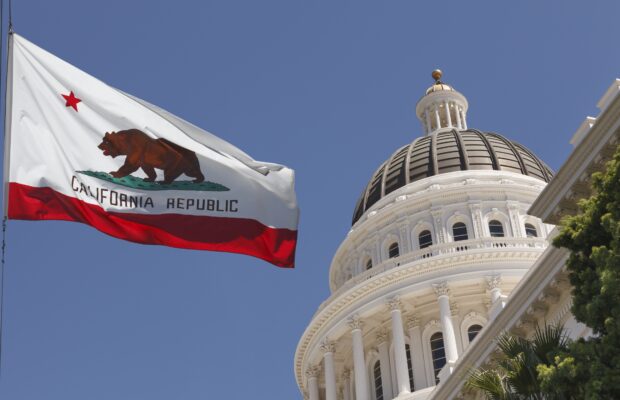Since we last reported on this topic, many of the residential and commercial eviction moratoriums that were enacted in response to the COVID-19 pandemic have been amended, replaced and/or extended. These moratoriums are generally set to expire on June 30, 2021. Depending on how COVID vaccination and the broader economic recovery play out in the coming months, these moratoriums may be further extended.
Residential Evictions
At the state level, the COVID-19 Tenant Relief Act (“CTRA”), which protects residential tenants from eviction for non-payment of rent due to COVID-19, is comprised of two statewide laws, AB 3088 and SB 91. Together, these laws have imposed a statewide eviction moratorium on evictions from March 1, 2020 through June 30, 2021 (the “State Moratorium Period”), and have replaced most of the local residential eviction moratoriums that were enacted at the start of the pandemic.
Under the CTRA, a residential tenant that owes rent during the State Moratorium Period cannot be evicted for failure to pay rent so long as they provide the landlord with a signed declaration claiming financial hardship related to COVID-19 within the required timeframe, and, on or before June 30, 2021, the tenant pays 25% of the rent owed to the landlord during the period from September 1, 2020 through June 30, 2021. Tenants remain responsible for paying any unpaid rent to landlords, but those unpaid amounts are not a permitted basis for eviction or late fees. Landlords may begin to recover unpaid rent on or after August 1, 2021 in small claims court (even if the amount of unpaid rent exceeds $5,000).
Commercial Evictions
Although the CTRA only applies to residential tenants, Governor Newsom’s Executive Order N-80-20 (“EO N-80-20”) grants local governments the authority to enact protections for commercial tenants. Many local governments that have enacted commercial eviction moratoriums have tied the effectiveness of the protections to EO N-80-20, which is currently set to expire on June 30, 2021. Key provisions of some of the most important Bay Area commercial eviction moratoriums include:
City and County of San Francisco:
On November 25, 2020, the San Francisco Board of Supervisors adopted an Ordinance (the “SF Ordinance”) to address commercial evictions (which replaced the March 18, 2020 Mayor’s Order that is no longer in effect). Under the SF Ordinance, if a “covered commercial tenant” misses rent payments from March 16, 2020 through June 30, 2021 (the “SF Moratorium Period”) because of financial impacts resulting from the COVID-19 crisis, the landlord may not evict the covered commercial tenant.
A “covered commercial tenant” is a tenant that (1) is registered to do business in San Francisco, and (2) has combined worldwide gross receipts for tax year 2019 equal to or below $25 million. However, the moratorium does not apply to for-profit entities occupying space in property zoned or approved for use as Office Use (as defined in Section 102 of the Planning Code), or to entities leasing property from the City and County of San Francisco.
The landlord is not permitted to assess interest or other charges based on unpaid rents that were due during the SF Moratorium Period. Additionally, the landlord must provide smaller (fewer than 50 full-time employees) covered commercial tenants a forbearance period after the moratorium ends to repay the missed rent before it can evict a covered commercial tenant for non-payment. The forbearance period is tied to the number of full-time employees employed by the covered commercial tenant, and ranges from 12 to 24 months after the end of the SF Moratorium Period. The SF Ordinance will expire upon expiration of EO N-80-20 or any extensions of the order (currently set to expire on June 30, 2021). If EO N-80-20 is further extended, the SF Ordinance will automatically be extended by its terms.
The SF Ordinance provides additional protection to small business owners with 10 or fewer full-time employees (“Tier 1 Tenants”). A Tier 1 Tenant that is unable to pay rent due to financial impacts related to COVID-19 has the option, despite any terms in the lease to the contrary, to terminate its lease if it fails to reach a mutually satisfactory agreement for repayment with the landlord.
More detailed information on the SF Ordinance can be found here.
City of Oakland:
Under the City of Oakland’s commercial eviction moratorium, landlords are not permitted to evict small businesses (generally independently owned and operated businesses, which together with their affiliates have 100 or fewer employees, and average annual gross receipts of $15 million or less over the previous three years – more particularly defined in Government Code Section 14837(d)(1)(A)), and nonprofit organizations for failure to pay rent if such failure is due to a substantial decrease of income caused by the COVID-19 pandemic or by any governmental response to COVID-19, and is documented. This does not relieve commercial tenants of the obligation to pay back rent in the future. The City of Oakland’s commercial eviction moratorium will expire upon expiration of EO N-80-20 or any extensions of the order (currently set to expire on June 30, 2021). If EO N-80-20 is further extended, the City of Oakland’s commercial eviction moratorium will automatically be extended by its terms.
Contra Costa County:
On February 2, 2021, the Contra Costa County Board of Supervisors unanimously passed Urgency Ordinance No. 2021-04, which extended the temporary commercial eviction moratorium for commercial tenants through June 30, 2021. Under Urgency Ordinance No. 2021-04, landlords cannot evict a commercial tenant for failure to pay rent if the tenant demonstrates that failure to pay is directly related to a loss of income associated with the COVID-19 pandemic or any local, state or federal government response to the pandemic. In order to qualify, a tenant must document the loss of income. Landlords cannot charge or collect late fees on any unpaid rent from a commercial tenant who demonstrated loss of income. Commercial tenants have a grace period ending August 31, 2021 (unless the landlord agrees to a longer repayment period), to pay past due rent for the period from March 16, 2020 to June 30, 2021.
Santa Clara County:
On November 3, 2020, the Santa Clara County Board of Supervisors enacted Ordinance No. NS-9.293, which extended Santa Clara County’s eviction moratorium for small business tenants until the earlier of the expiration of EO N-80-20 or April 30, 2021. Unlike the other local eviction moratoriums described above, Santa Clara County’s eviction moratorium is currently set to expire on April 30, 2021. Small business tenants (defined in the U.S. Small Business Administration’s table of size standards by industry, codified in the Code of Federal Regulations at 13 C.F.R. Section 121.201) have 6 months after the moratorium expires or terminates to repay at least 50% of the past-due rent, and up to 12 months after the moratorium expires or terminates to repay in full the past-due rent. Landlords cannot charge late fees on unpaid rent due so long as the rent is repaid according to the above timeline. Santa Clara County’s commercial eviction moratorium does not prevent a landlord from pursuing lawful or “at-fault” evictions for reasons other than non-payment of rent.
We will continue to monitor developments to the state eviction moratorium and local eviction moratoriums across the Bay Area. Contact Real Estate attorneys Tamara Lam-Plattes at tlam-plattes@coblentzlaw.com or Leah Collins at lcollins@coblentzlaw.com for additional information.



